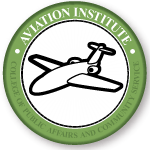Author ORCID Identifier
Huang - https://orcid.org/0000-0003-2087-8745
Mendonca - https://orcid.org/0000-0001-7732-217X
Keller - https://orcid.org/0000-0003-0351-1570
Document Type
Article
Publication Date
12-2020
Publication Title
Journal of Airline and Airport Management
Volume
10
Issue
2
DOI
https://doi.org/10.3926/jairm.160
Abstract
Purpose: Aircraft accidents due to wildlife hazards have become a growing safety and economic problem to the Brazilian and international aviation industries. These safety occurrences have resulted in significant direct and indirect economic losses as well injuries and fatalities worldwide. The purpose of this study was to develop empirical information obtained from the analysis of wildlife strike and aircraft operations data in Brazil that could be used for accident prevention efforts.
Design/methodology: The research team collected and analyzed aircraft operations as well as wildlife strike data from the 32 busiest commercial airports in Brazil, from 2011 through 2018. Researchers obtained the number of aircraft operations at each of those 32 Brazilian airports from the Brazilian air traffic operations annual reports published by the Air Traffic Control Department. Wildlife strike data from the studied airports were obtained from the Brazilian national wildlife strike database. Descriptive data analysis was adopted to provide an intuitive and overall trend of wildlife strikes at and the 32 busiest commercial airports in Brazil.
Findings: Results indicate that the number of wildlife strikes at and around the investigated airports increased 70% even though the number of aircraft operations at these airports declined by 12% during the period studied. Birds were involved in 88% of the reported events. Most reported strikes (59%) and damaging strikes (39%) occurred during the arrival phases-of-flight. Most (33%) strikes were reported by airport personnel. A finding of concern was that the majority of wildlife strikes (97%) and damaging wildlife strikes (96%) occurred within the airport environment.
Originality/value: The current project contributes to the safety management of wildlife hazards in Brazil by conducting a comprehensive analysis of wildlife strike and aircraft operations data (2011-2018) in the 32 busiest Brazilian commercial airports.
Recommended Citation
Mendonca, Flavio A. C.; Keller, Julius; and Huang, Chenyu, "An analysis of wildlife strikes to aircraft in Brazil: 2011-2018" (2020). Aviation Institute Faculty Publications. 9.
https://digitalcommons.unomaha.edu/aviationfacpub/9
Creative Commons License

This work is licensed under a Creative Commons Attribution-Noncommercial 4.0 License


Comments
This is an open access article licensed under the Creative Commons Attribution NonCommercial license.